 W
WAli Abu Nuwar was a Jordanian army officer, serving as chief of staff in May 1956 – April 1957. He participated in the 1948 Arab–Israeli War as an artillery officer in the Jordanian army's predecessor, the Arab Legion, but his vocal opposition to British influence in Jordan led to his virtual exile to Paris as military attaché in 1952. There, he forged close ties with Jordanian crown prince Hussein, who promoted Abu Nuwar after his accession to the throne.
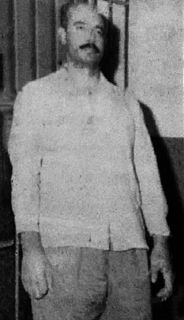 W
WJassem Alwan was a prominent colonel in the Syrian Army, particularly during the period of the United Arab Republic (UAR) (1958–1961) when he served as the Commander of the Qatana Base near Damascus. Alwan, a staunch supporter of UAR President Gamal Abdel Nasser, opposed Syria's secession from the union in 1961, leading two failed coup attempts to overthrow the secessionist government in 1962.
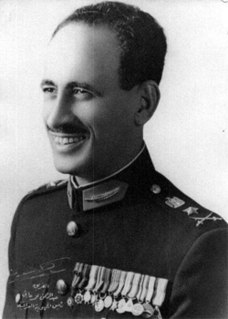 W
WHajj ʿAbd al-Rahman Mohammed ʿArif al-Jumayli was the third president of Iraq from 16 April 1966, to 17 July 1968.
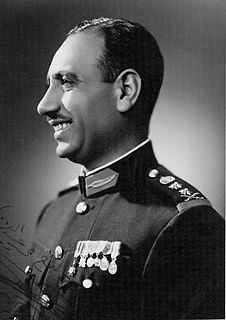 W
WʿAbd al-Salam Mohammed ʿArif al-Jumayli was the second president of Iraq from 1963 until his death in 1966. He played a leading role in the 14 July Revolution, in which the Hashemite monarchy was overthrown on 14 July 1958.
 W
WAbd al-Rahman al-Bazzaz was a politician, reformist, and writer. He was a pan-Arab nationalist and served as the Dean of Baghdad Law College and later as Prime Minister of Iraq. Al-Bazzaz main political project was the professionalization of the government through increasing access to civilian expertise. That civic agenda came at the expense of the military. Al-Bazzaz was charged by the Ba'athist-dominated government of participation in activities against the government and he was tortured and imprisoned. Al-Bazzaz was finally released because of illness in 1970 and moved to London for treatment where he later died in Baghdad, 28 June 1973.
 W
WAhmed Ben Bella was an Algerian politician, socialist soldier and revolutionary who served as the first President of Algeria from 1963 to 1965.
 W
WAfif al-Bizri was a Syrian career military officer who served as the chief of staff of the Syrian Army between 1957–1959. He was known for his communist sympathies, and for spearheading the union movement between Syria and Egypt in 1958.
 W
WMohamed Brahmi was a Tunisian politician. Brahmi was the founder and former leader of the People's Movement, which, under his leadership, won two seats in the constituent election in 2011.
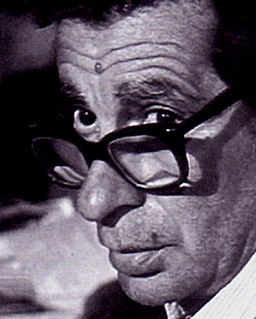 W
WYoussef Chahine was an Egyptian film director. He was active in the Egyptian film industry from 1950 until his death. He has 13 films in the Top 100 Egyptian films list. A winner of the Cannes 50th Anniversary Award, Chahine was credited with launching the career of actor Omar Sharif. A well regarded director with critics, he was often present at film festivals during the earlier decades of his work, Chahine gained his largest international audiences as one of the co-directors of 11'9"01 September 11 (2002).
 W
WDiaa al-Din Dawoud was an Egyptian politician and activist. He is the founder of the Arab Democratic Nasserist Party, serving as its secretary-general between 1992 and November 2010.
 W
WNaglaa Fathi aka Nagla' Fathi, whose birth name is Fatmah Elzahra' Hesin Fathi ,. Nagla' Fathi, is an Egyptian actress. She started her acting career in 1967 and has played a role in over 80 films. She established a production company and produced films, including film : Supermarket (1990) in which she was actress also. The award-winning actress also wrote the screenplay for Tomorrow I Will Take Revenge, (1980).
 W
WMuammar Muhammad Abu Minyar al-Gaddafi, commonly known as Colonel Gaddafi, was a Libyan revolutionist, politician and political theorist. He governed Libya as Revolutionary Chairman of the Libyan Arab Republic from 1969 to 1977 and then as the "Brotherly Leader" of the Great Socialist People's Libyan Arab Jamahiriya from 1977 to 2011. He was initially ideologically committed to Arab nationalism and Arab socialism but later ruled according to his own Third International Theory.
 W
WField Marshal Khalifa Belqasim Haftar is a Libyan-American military officer and the commander of the Tobruk-based Libyan National Army (LNA). On 2 March 2015, he was appointed commander of the armed forces loyal to the elected legislative body, the Libyan House of Representatives.
 W
WMohamed Hassanein Heikal was an Egyptian journalist. For 17 years (1957–1974), he was editor-in-chief of the Cairo newspaper Al-Ahram and was a commentator on Arab affairs for more than 50 years.
 W
WAdnan al-Malki was a Syrian Army officer and political figure in the mid-20th century. He served as the deputy-chief of staff of the army and was one of the most powerful figures in the army and in national politics until his assassination, blamed on a SSNP militant in 1955. At the time of his assassination he held the rank of Colonel in the Syrian Army.
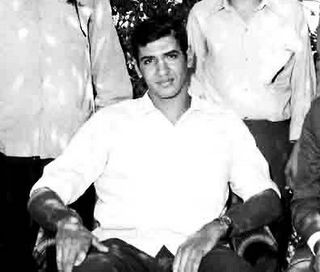 W
WKhalid Abdel Nasser was the eldest son of Egypt's second President Gamal Abdel Nasser and his wife Tahia Kazem.
 W
WAdnan al-Pachachi or Adnan Muzahim Ameen al-Pachachi was a veteran Iraqi and Emirati politician and diplomat who served as Foreign Minister. Pachachi was Iraq's Permanent Representative to the United Nations from 1959 to 1965 and Minister of Foreign Affairs of Iraq from 1965 to 1967, during the Six-Day War with Israel; he again served as Permanent Representative to the UN from 1967 to 1969. After 1971, he spent a long period in exile. Following the 2003 invasion of Iraq, Pachachi was an important figure in Iraqi politics, often described as Iraq's elder statesman. He rejected the role of president in the Iraqi Interim Government.
 W
WArif Abd ar-Razzaq or Aref Abdel Razzak was Prime Minister of Iraq for 11 days in September 1965. On September 17 he fled to Egypt, after participating in a failed coup d'état against President Abdul Salam Arif. On 12 June 1966 he led another unsuccessful attempt to overthrow the new government of Premier Abd ar-Rahman al-Bazzaz and President Abdul Rahman Arif.
 W
WAbdullah Rimawi was the head of the Ba'ath Party in Jordan in the 1950s. He served as Foreign Affairs Minister in Suleiman Nabulsi's government in 1957. A staunch pan-Arabist, Rimawi became one of the most vocal opponents of the Hashemite ruling family in Jordan and favored union with Syria. He fled Jordan in 1957 as the result of a crisis between the leftist government and the royal family. He based himself in the United Arab Republic where he drew closer to UAR President Gamal Abdel Nasser provoking his expulsion from the Ba'ath Party—which was at odds with Nasser—in 1959. Soon after he founded a splinter party called the Arab Socialist Revolutionary Ba'ath Party. During his exile, he allegedly made a number of attempts to attack or undermine the Jordanian monarchy.
 W
WMaarouf Saad was a Lebanese politician and activist. He served as Sidon's representative in the Parliament of Lebanon between 1957 and 1972. He founded the Popular Nasserite Organization in 1973. Saad was known to have a charismatic and populist relationship with the residents of Sidon and the adjacent Palestinian refugee camps, according to historian Samir Khalaf. Nonetheless, tensions developed between Saad and the Palestine Liberation Organization in the 1970s as they competed for influence in Sidon. Saad's assassination sparked the Lebanese Civil War, and he is considered by many historians the conflict's first casualty.
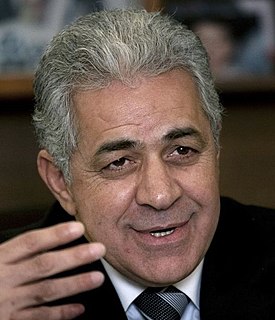 W
WHamdeen Sabahi is an Egyptian politician, journalist and poet. He is currently the leader of the Egyptian Popular Current and a co-leader of the National Salvation Front. An opposition activist during the Anwar Sadat and Hosni Mubarak eras, Sabahi was jailed 17 times during their presidencies for political dissidence. He was an immediate supporter and participant of the 2011 Egyptian revolution. Sabahi entered the 2012 Egyptian presidential race in which he finished third place with 21.5% of the vote trailing the second place candidate Ahmed Shafiq by a margin of 700,000 votes. In the 2014 presidential election he was one of just two candidates. He ran second with less than 4% of the vote. Abdel Fattah el-Sisi was declared the winner after attracting 22 million of the nearly 23 million votes cast. Sisi was sworn into office as President of Egypt on 8 June 2014.
 W
WFaysal Abd al-Latif al-Shaabi was the Prime Minister of the People's Republic of South Yemen from 6 April 1969 until the political coup that led to Salim Ali Rubai's ascendance to power on 22 June 1969. Al-Shaabi was appointed Prime Minister by President Qahtan Mohammed al-Shaabi. After being ousted, al-Shaabi was kept under house arrest, but was moved to a detention camp at the end of March 1970. On 3 April 1970, the government radio in Aden broadcast a report that al-Shaabi "was fatally wounded when he tried to escape the detention camp."
 W
WQahtan Muhammad al-Shaabi was the first President of the People's Republic of South Yemen. Al-Shaabi's National Liberation Front (NLF) political organisation wrested control of the country from the British and won political supremacy over the opposition Front for the Liberation of Occupied South Yemen (FLOSY) in 1967. On 30 November 1967, the protectorate of South Arabia was declared independent as the People's Republic of South Yemen with al-Shaabi as President. Al-Shaabi held the presidency until 22 June 1969, when a hard-line Marxist group from within his own NLF seized control. He was replaced by Salim Rubai Ali (Salmin) and jailed, then placed under house arrest until the 1970s, and lived quietly in Aden from his release until his death in 1981.
 W
WNaji Talib Arabic: ناجي طالب was the prime minister of Iraq from 1966 to 1967, replacing Abd ar-Rahman al-Bazzaz.